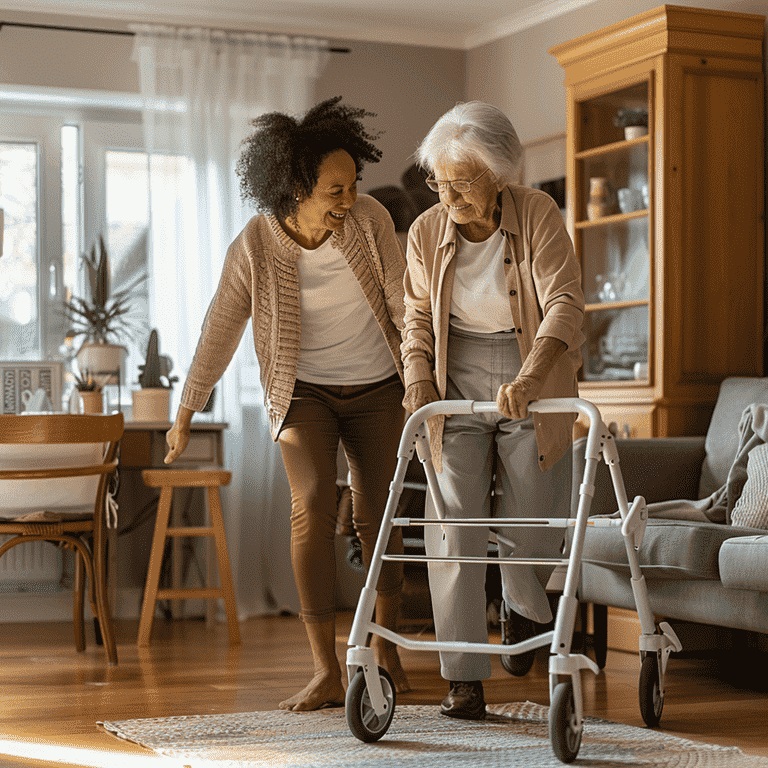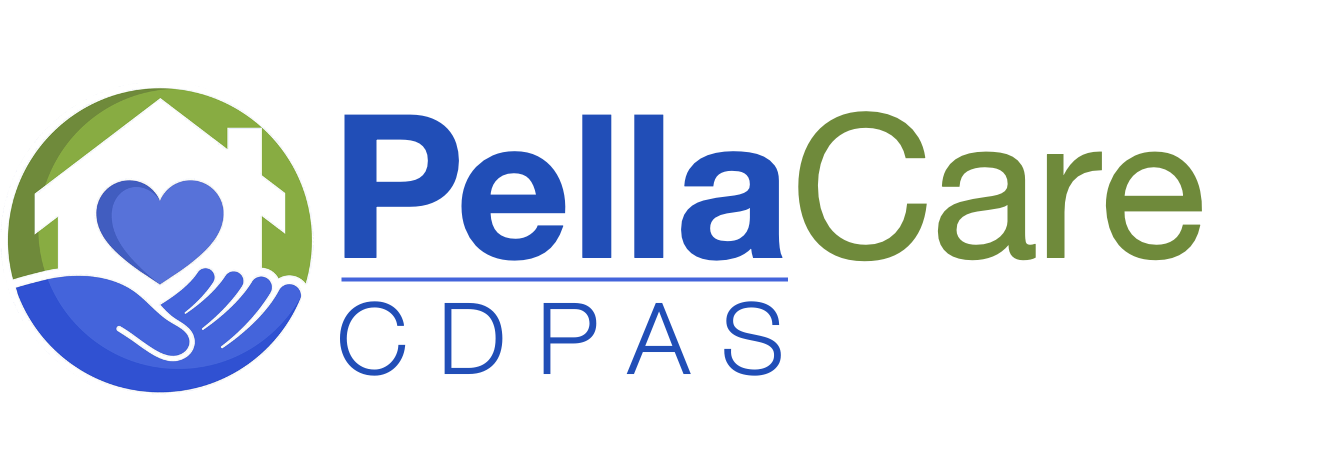Introduction
The Consumer Directed Personal Assistance Program (CDPAP) in New York is a vital resource for seniors seeking personalized care at home. This program empowers elderly individuals by allowing them to select and hire their own caregivers, ensuring that their unique needs are met in a comfortable and familiar environment.

CDPAP provides support for daily living activities, helping seniors maintain independence.
Examples of Activities of Daily Living (ADLs)
The term Activities of Daily Living (ADLs) refers to the essential tasks that individuals perform daily to maintain their personal well-being. These tasks are critical for seniors and those with disabilities, as they directly impact their independence and quality of life. Some common examples of ADLs include:
- Personal Hygiene: Bathing, grooming, and maintaining oral hygiene.
- Dressing: Selecting appropriate clothing and dressing oneself.
- Eating: Preparing meals and feeding oneself.
- Mobility: Moving from one place to another, including walking, getting in and out of bed, and using assistive devices.
- Continence: Managing bladder and bowel control.
- Toileting: Getting to and from the bathroom and cleaning oneself after.
Through CDPAP, caregivers assist with these activities, allowing seniors to continue living independently and with dignity.
The Evolution of CDPAP in New York
Established in 2000 under New York State’s Executive Budget for Medicaid Personal Care Services, CDPAP is a unique program that grants individuals full control over their personal care services. The program’s primary objective is to empower people with disabilities and chronic illnesses who need assistance with daily living activities by allowing them to hire family members or friends as their caregivers.
This approach not only enhances the quality of life for the care recipients but also provides job opportunities for caregivers, often leading to better job satisfaction and a more affordable solution for long-term care in New York.
Eligibility Requirements for CDPAP
To qualify for CDPAP, individuals must meet specific criteria:
- Medicaid Coverage: Enrollment in Medicaid is mandatory, as it covers the cost of personal aides hired through the program. These aides are not required to be licensed healthcare professionals, making the program accessible to those who may otherwise struggle to afford in-home care.
- Need for Home Care: Applicants must require home care to remain in a familiar and supportive environment. Home care provides the comfort of being surrounded by loved ones and the familiarity of home, as opposed to a medical facility.
- Self-Direction or a Designated Representative: Participants must either be capable of managing their own care or appoint someone to manage it for them. This ensures that care is tailored to the individual’s preferences and needs.
Key Benefits of CDPAP
CDPAP offers numerous benefits that distinguish it from traditional home care programs:
- Recruiting Your Own Caregivers: Participants can choose their caregivers, whether a family member, friend, or independent contractor, ensuring a personalized care experience.
- Flexible Care Schedules: CDPAP allows individuals to create customized care plans, including selecting a primary caregiver who understands their medical history and scheduling services that fit their lifestyle.
- Independence in Decision-Making: Unlike traditional home care, CDPAP empowers individuals to make their own healthcare decisions, fostering a sense of independence and self-determination.
- Training for Special Tasks: Caregivers under CDPAP receive training to perform specialized tasks, ensuring they are well-equipped to handle the unique needs of those they care for.
Who Can Be a CDPAP Caregiver?
The Consumer Directed Personal Assistance Program (CDPAP) allows seniors and individuals with disabilities in New York to select their caregivers, including friends, neighbors, and most family members. This flexibility ensures that the caregiver understands the care recipient’s needs, providing a comfortable and personalized care experience at home.
- Family Members: Spouses are not eligible, but adult children, siblings, grandchildren, and other relatives can serve as caregivers.
- Friends and Neighbors: Non-relatives with a trusted relationship with the care recipient are also eligible to become caregivers.
- Teenagers: With proper training and parental consent, family members as young as 14 can provide care under CDPAP, offering a unique opportunity for young people to support their loved ones.
Who Cannot Be a CDPAP Caregiver?
- Spouses: Due to CDPAP regulations, spouses are not permitted to be paid caregivers, as their relationship is considered too close and intertwined with financial dependency.
- Parents of Minor Children: Parents cannot be paid caregivers for their children under CDPAP due to a conflict of interest in the caregiver relationship.
- Legal Guardians: Those who hold legal guardianship over the care recipient are not eligible to be paid caregivers.
To become a CDPAP caregiver, individuals must be hired directly by the care recipient or their designated representative. This process ensures the caregiver is well-suited to the needs and preferences of the person receiving care.
Steps to Become a CDPAP Caregiver:
- Qualify Through the Care Recipient: The care recipient must be eligible for Medicaid, require home care, and be capable of self-directing their care or have a designated representative.
- Employment Process: Caregivers are not employed by traditional home care agencies; instead, they are directly chosen and managed by the care recipient.
- Training Requirements: While caregivers do not need to be licensed healthcare professionals, they must undergo necessary training related to the care recipient’s needs, such as administering medication or assisting with mobility.
CDPAP Regulations and Compliance
CDPAP is governed by strict laws and regulations to ensure the highest standard of care. These rules protect both the care recipients and their personal assistants, ensuring that seniors receive comprehensive support while caregivers benefit from job security and fair compensation. Staying informed about the latest regulations is crucial for both caregivers and care recipients to ensure compliance and maximize the program’s benefits.
Final Thoughts
CDPAP offers a unique and personalized approach to home care, allowing seniors and individuals with disabilities to maintain independence by hiring caregivers who truly understand their needs. By knowing who can and cannot provide care under CDPAP, families can make informed decisions that best support their loved ones. For more information on how to get started and make the most of this valuable program, contact a CDPAP provider like Pella Care CDPAS today.
What’s Next
Are you a New York State resident caring for an elderly family member? Imagine getting paid for the care you give every day. At Pella Care, we make it possible. Call us now at 718-837-1010 to find out how you can turn your caregiving into a paid opportunity. Take the first step towards getting compensated for the love and support you provide—call us today!

Recent Comments